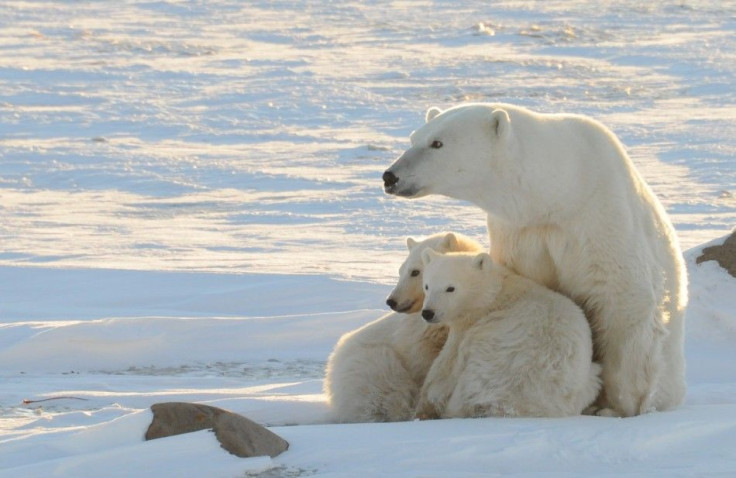How Global Warming Kills Polar Bear Cubs

Global warming is killing polar bear cubs.
This may sound like a typical sensationalist claim by alarmist environmentalists, but it's backed up by evidence, according to a new study being published in the Canadian Journal of Zoology.
Scientists already know that the melting of ice platforms in the Arctic Circle forces polar bears to swim as much as hundreds of miles to search for new land or ice platforms. In fact, the longest swim recorded by the Canadian Journal of Zoology study was 426 miles. In duration, it was 12.7 days.
The study found that during swims longer than 30 miles, 45 percent of polar bear cubs who swam with their mothers (5 out of 11) died during the swim.
Steve Amstrup, chief scientist at Polar Bears International, told Reuters that polar bear cubs have less body fat, which makes them less buoyant and more susceptible to the cold arctic waters.
Drowning isn't the only way melting ice platforms are threatening polar bears; it's also taking away their habitat and food sources.
Critics of global warming, however, have two counters to claims like the one made by the Canadian Journal of Zoology study.
One claim is that nature adapts. Polar bears, for example, descended from terrestrial brown bears that lived in warmer climates. If the climate warms again, the polar bear gene pool could revert back to brown bear characteristics.
The flaw with this argument, though, is that the process of natural selection fundamentally changing a species takes many generations. If the Arctic Circle melts in a short amount of time, the polar bear population might now have enough time to adapt genetically.
The other argument is that the entire concept of man-made global warming is false. Although it's an indisputable fact that global temperatures have risen in the last 100 years, a few scientists argue it's due to other factors or that the human-induced theory doesn't have enough proof.
© Copyright IBTimes 2025. All rights reserved.





















